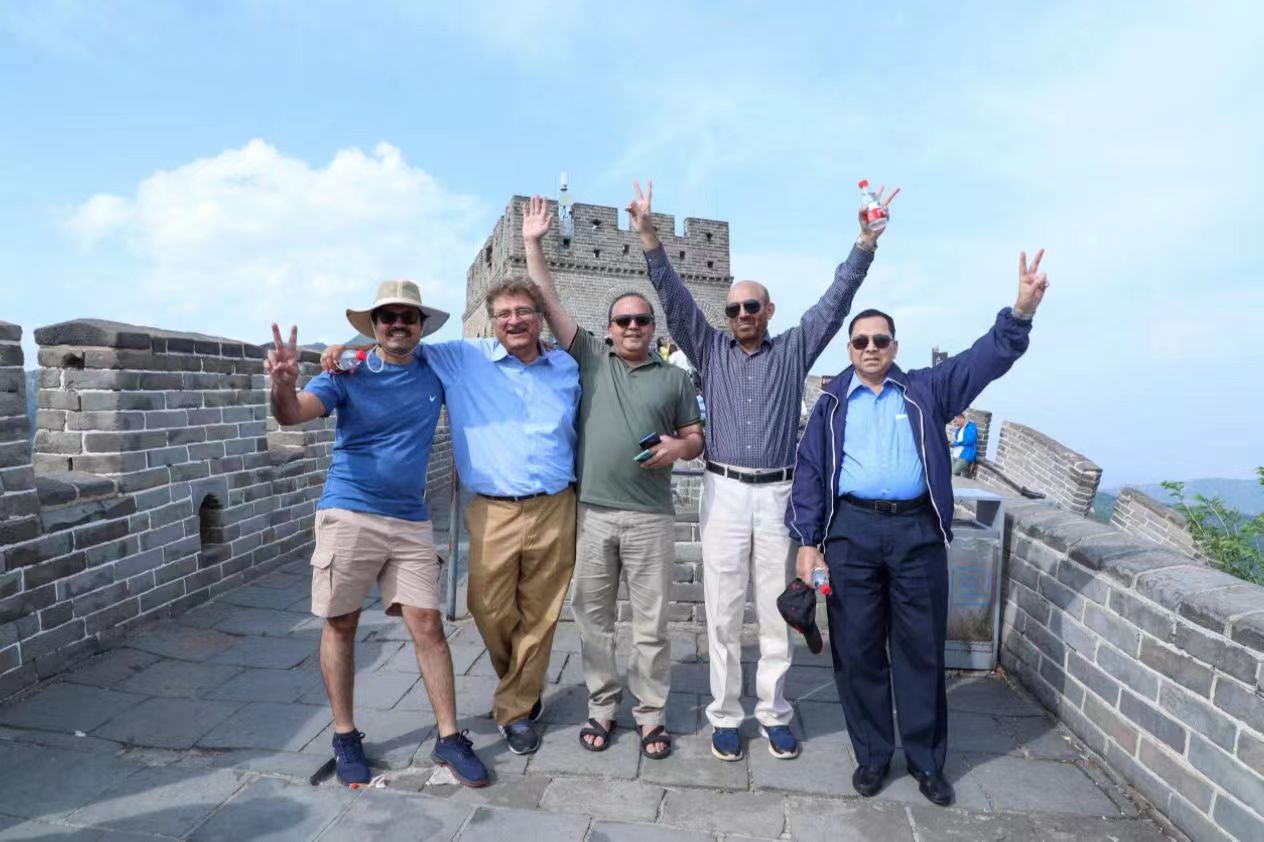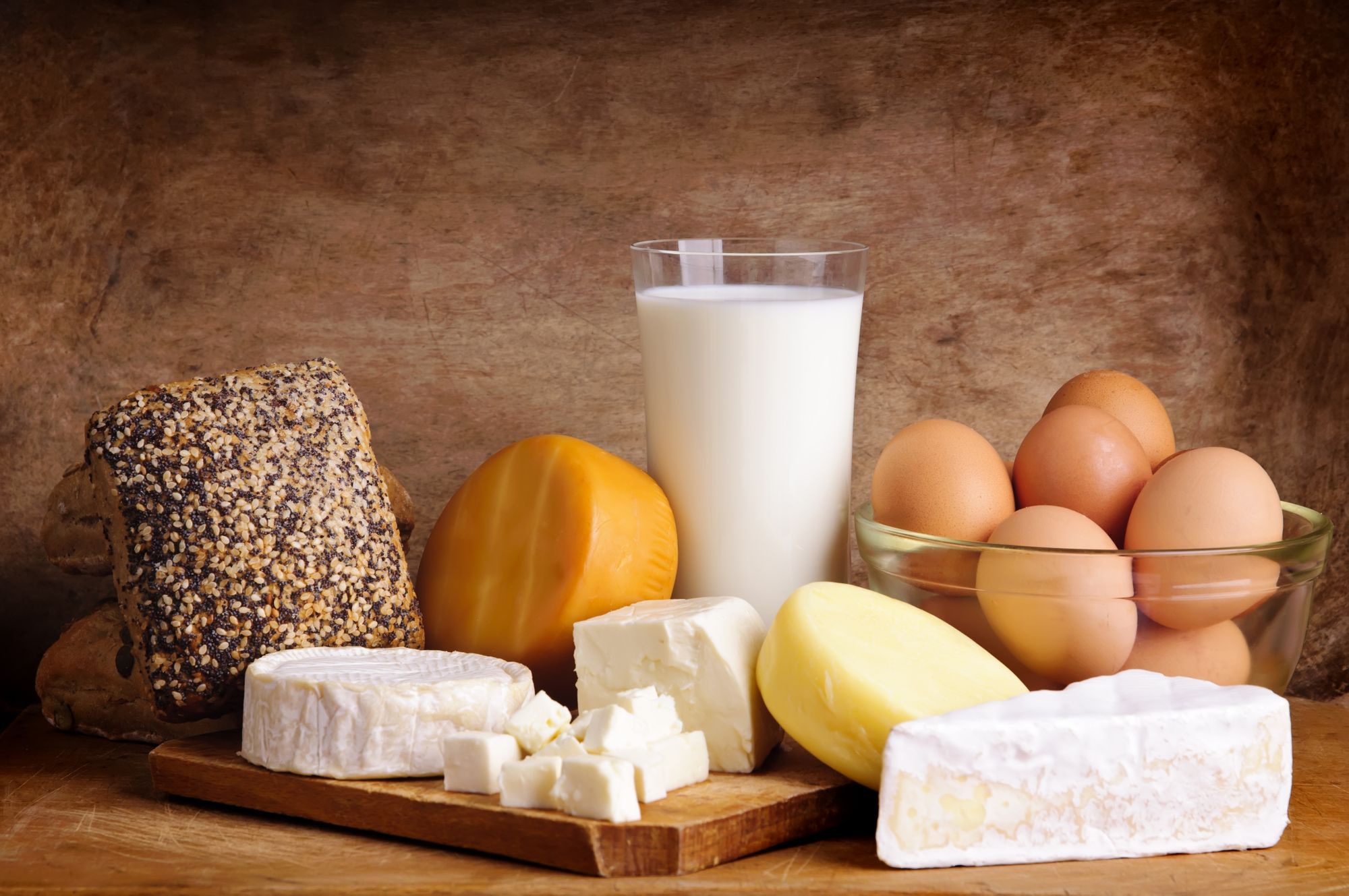BEIJING, June 4- “Every part of my visit to China was just amazing! The hospitality I received in China was memorable! China’s historical civilization, tasty cuisine, modern industry and advanced technology are insurmountable,” Muhammad Azam, President of Lahore Press Club, Pakistan told Gwadar Pro reporter after visiting the magnificent traditional architectures, convenient urban transportation and bustling business districts in Beijing.
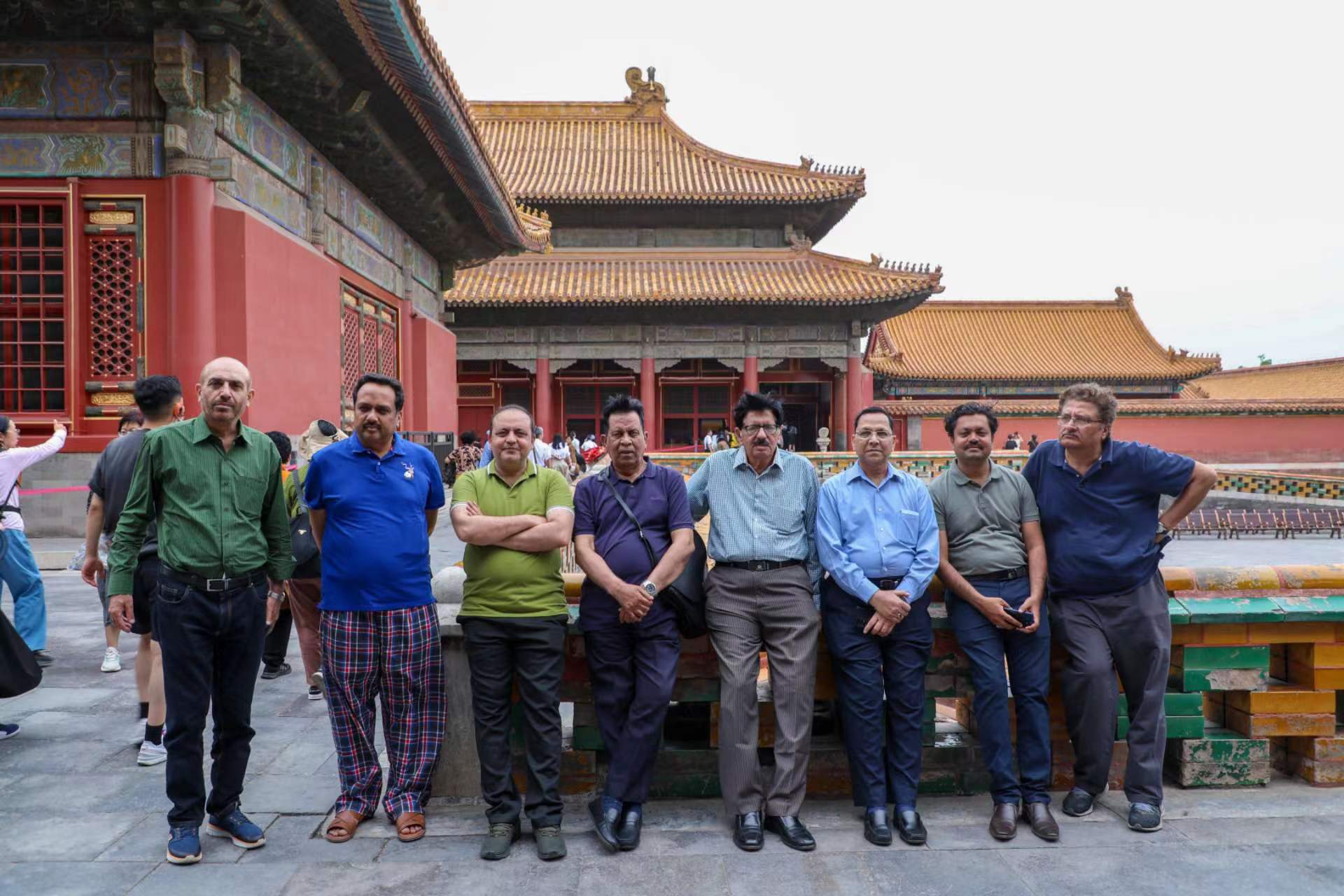
Pakistani delegation visits the Palace Museum, Beijing.
At the invitation of the Consulate General of China in Lahore, a delegation of 8 senior leaders from leading media and think tanks of Punjab, Pakistan visited Beijing and Shenzhen, China from May 24 to May 30. Chinese Consul General in Lahore Zhao Shiren noted this is the first media and think-tank delegation organized by the Chinese Consulate General in Lahore to visit China after the Covid-19 pandemic to resume people-to-people exchanges.
The delegation included Lt Col (Retd) Sayed Ahmad Nadeem Qadri, Director General Operations of Nawa-i-Waqt Group, and senior editors from mainstream Pakistani media like The Nation, City News Network, Daily 42 City News Network, The News International, Dawn, PTV and Institute of International Relations and Media Research.
Exploring the great charm of traditional Chinese architecture
“Nothing could be more exciting than being nominated as a member of an 8-member delegation to explore the great charm of traditional Chinese architecture and tap its tourism potential,” highlighted Saleem Bokhari, Group Chief Editor of City News Network during his visit at the Palace Museum on his first day in Beijing.
Reflecting on one of the largest and best preserved ancient wooden structures in the world, Lt Col (Retd) Sayed Ahmad Nadeem Qadri, head of the delegation thought of the inner city of Lahore, which is the cultural and historical icon of Pakistan. He pointed out that in recent years, the inner Lahore city has become an example of Pakistan’s rendezvous by rejuvenating its cultural and heritage sites. The commercialization and transportation layout of cultural sites in Pakistan can learn from the Chinese experience.
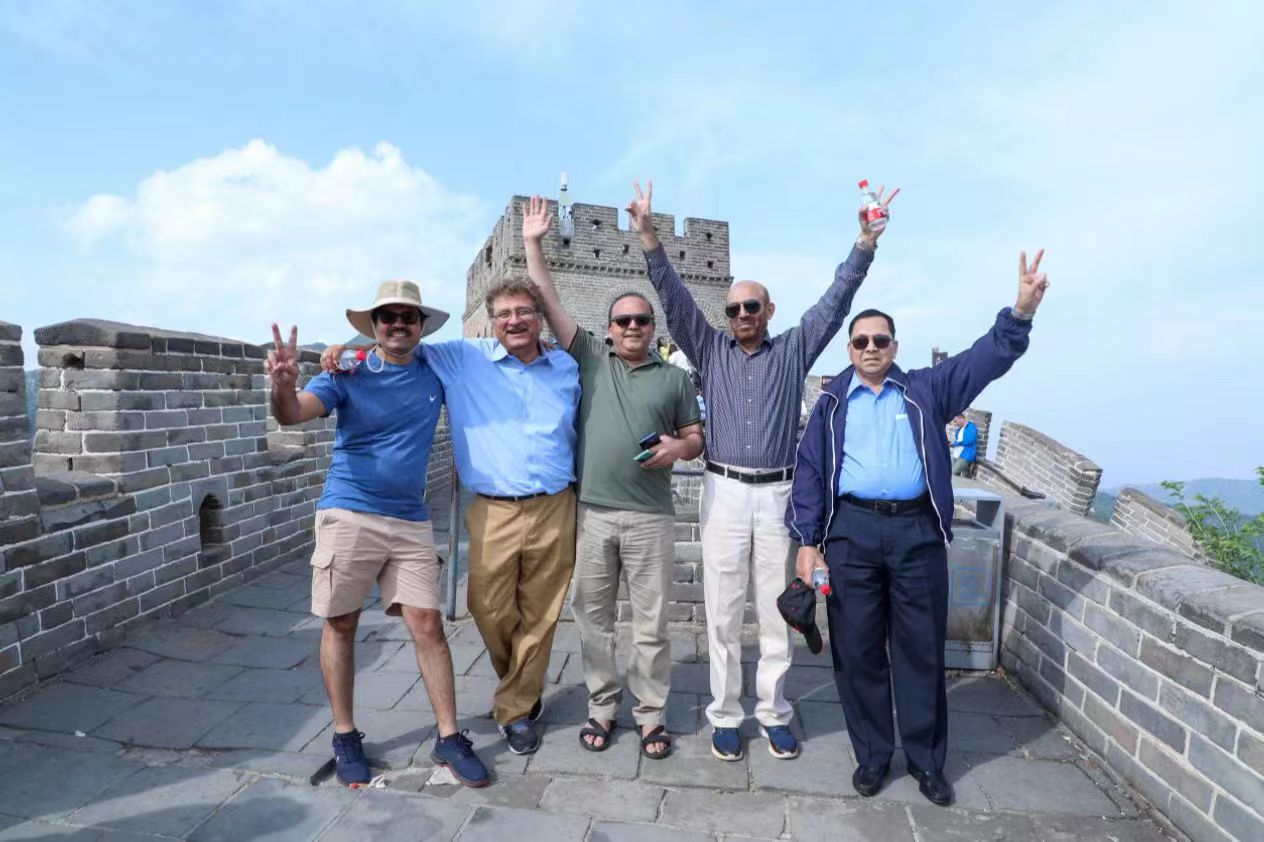
Pakistani delegation visits the Great Wall, Beijing.
The delegation was also impressed by the Great Wall, one of the seven wonders of the medieval world. After boarding the beacon tower, the delegation enjoyed a full view of the ‘Golden Dragon’, which winds around mountains covered with endless verdure. Khawar Abbas, Senior Vice President Punjab Union of Journalists, and Nasir Jamal, Bureau Chief Lahore of Dawn, finally understood what “He who has not been to the Great Wall is not a true man” means.
Sharing experience in sustainable development with energy and infrastructure companies
Apart from experiencing China’s more than 5,000 years of civilization, the delegation expected a lot to visit the headquarters of companies involved in constructing China-Pakistan Economic Corridor (CPEC). In Beijing the delegation visited the headquarter of China State Construction Engineering Corporation (CSCEC), the contractor of the Matiari-Lahore ±660 High Voltage Direct Current (HVDC) Transmission Line Project with a length of 886 KM in Pakistan and PKM. They expressed admiration for the achievements of Chinese companies in the construction of CPEC, and exchanged views on cross-cultural integration and sustainable development.
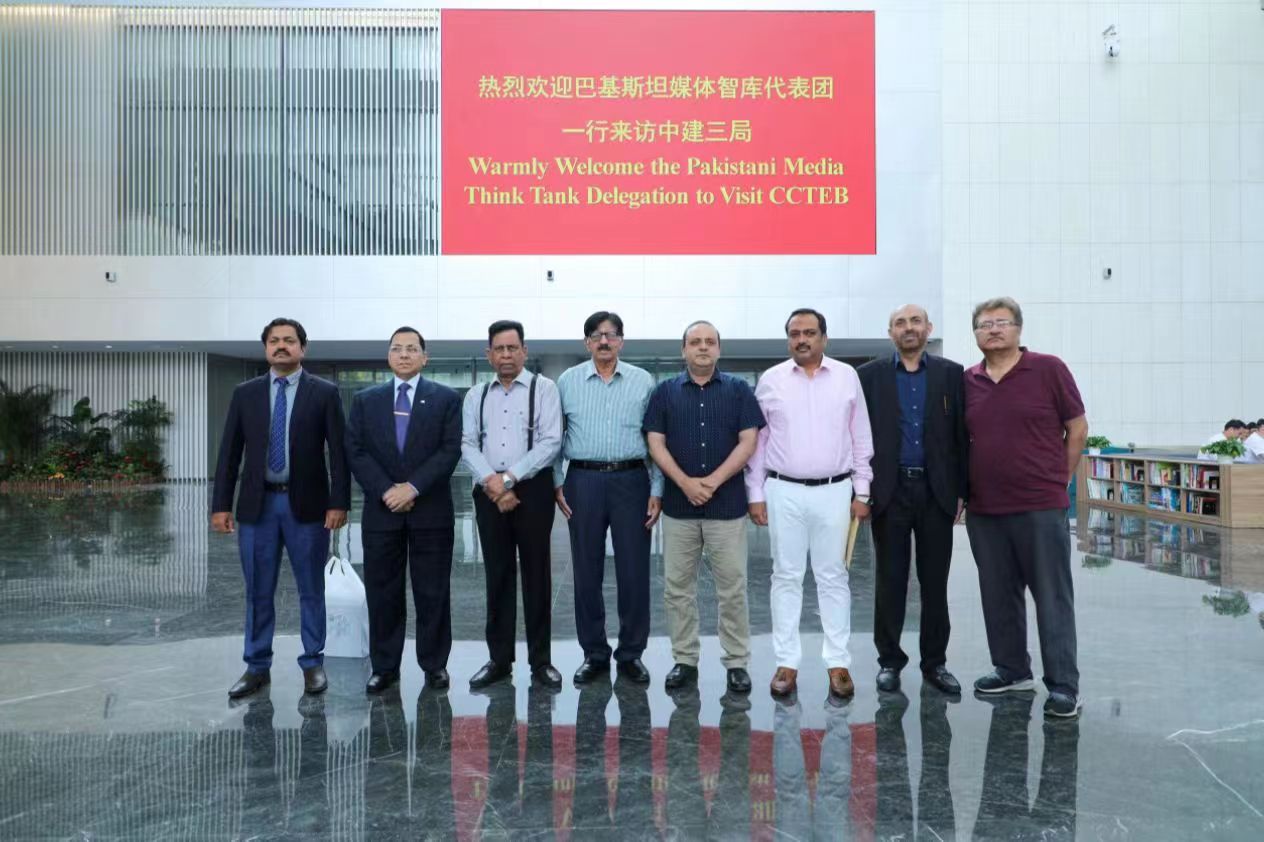
Pakistani delegation visits CCTEB.
The PKM (Sukkur-Multan Section) project is a high-standard motorway with the highest design grade. It adopts Chinese SBS modified asphalt technology and is also the only motorway in Pakistan with trees along the entire road and can resist once-in-a-century floods. The project protected the ecology by planting trees along the route, which are now growing in full vigor, forming a 392-km green gallery.
Mian Saifur Rehman, Editor Reporting of The News International, Lahore, was impressed by China’s standardization and its efforts in promoting sustainable development in the country. He noted that the architects from both sides had devoted a lot of manpower, material resources and efforts to the development of energy and infrastructure in Pakistan, which is respectful.
Muhammad Mehdi, Chairman of Institute of International Relations and Media Research noted that “to ensure the smooth progressing of various projects under the CPEC framework, and to bring benefits to our people’s livelihood, it is crucial to guarantee timely availability of funds for Chinese companies that help Pakistan improve infrastructure.”
Technology applications fully demonstrating the surging power of China’s innovation
After a four-day visit in Beijing, the delegation headed for Shenzhen to visit Huawei’s digital transformation exhibition hall, BYD’s exhibition hall and its vehicle crash testing laboratory. They expressed appreciation to the two companies for their investment in research and development, as these companies invest a huge proportion of their costs in their own research and development, on a scale that exceeds many other companies in the world.
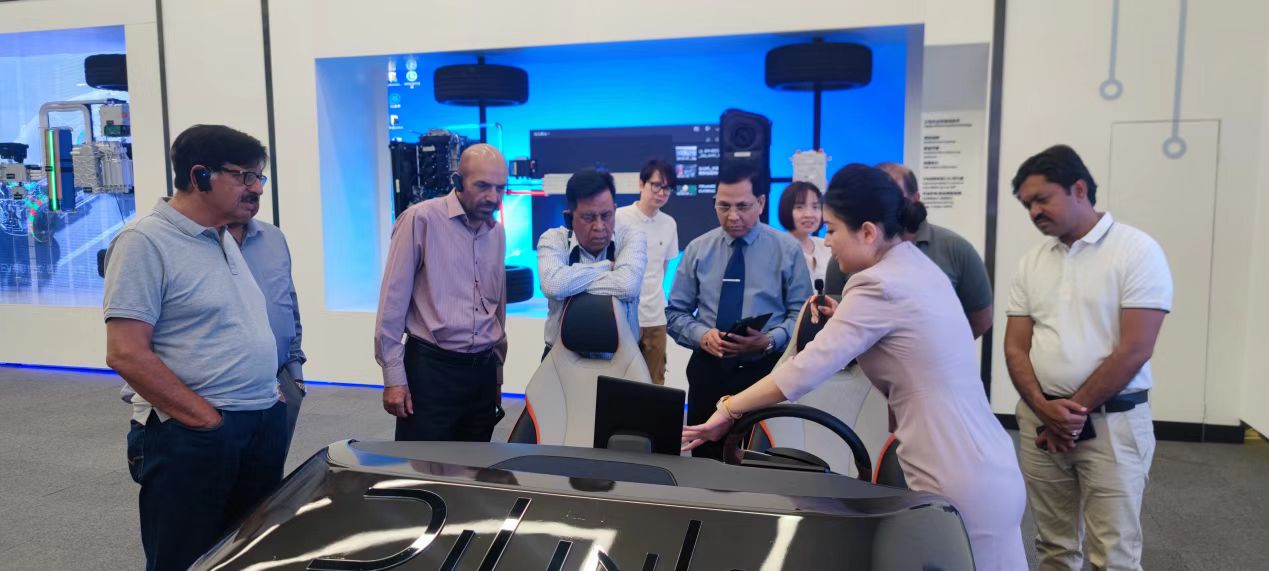
Pakistani delegation visits BYD exhibition hall.
Seeing many electric cars running on Shenzhen’s roads, Naveed Chaudhary highlighted that billions of dollars would be saved from the oil import bill if the model of promoting electric vehicles in China was initiated in Pakistan.
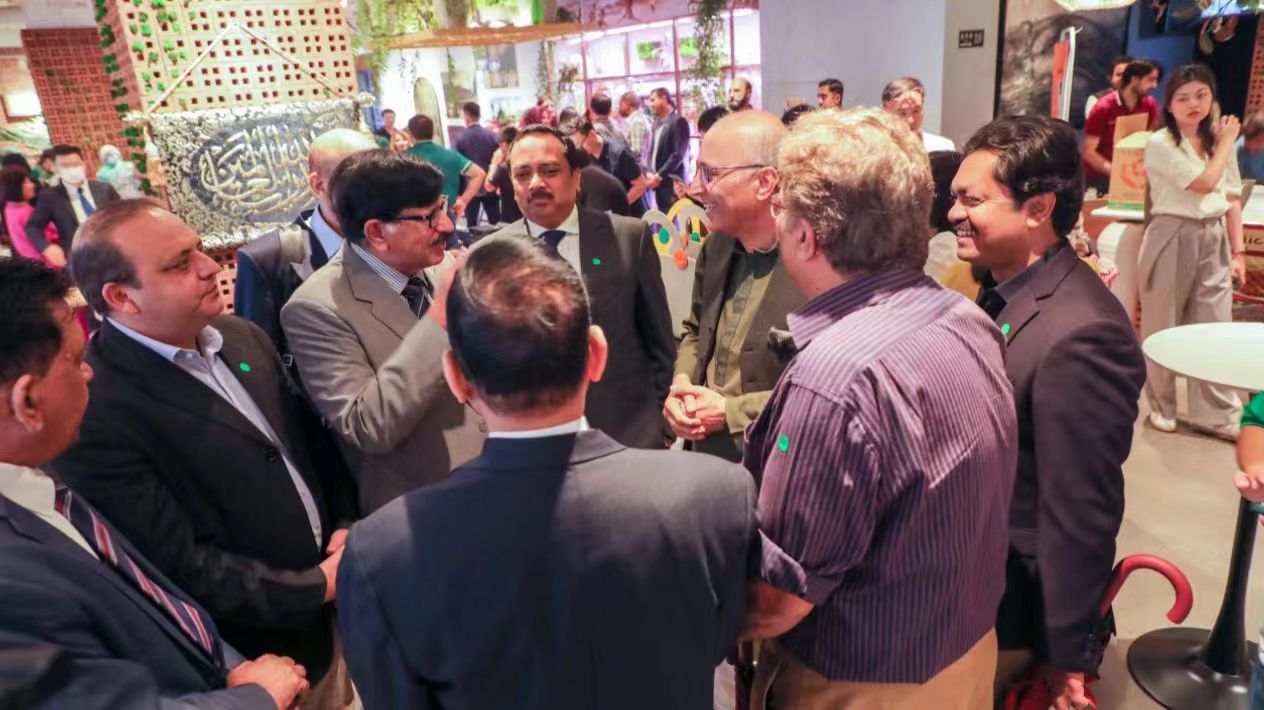
Pakistani Ambassador to China Moin ul Haque communicates with the Pakistani delegation.
In addition to extensive exchanges with Chinese enterprises, the delegation also participated in cultural exchange activities between China and Pakistan, including the Phenomenal Pakistan Cultural Feast. Pakistani Ambassador to China Moin ul Haque welcomed the delegation.


